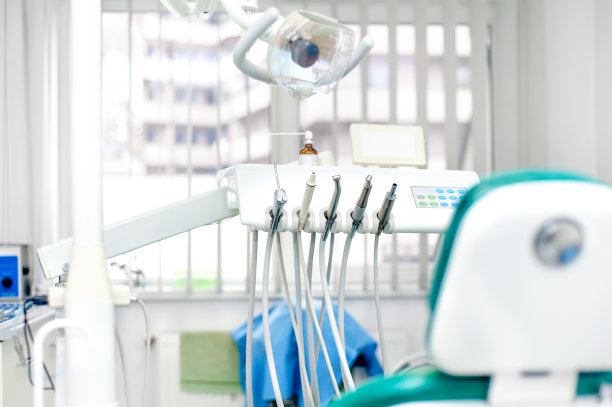Summary: The journey of extracting a tooth may seem daunting, but it is a critical aspect of maintaining dental health. This article explores the process of tooth extraction from understanding when it is necessary, the techniques involved, post-extraction care, and the significant role that dental health plays in overall well-being. By delving into these areas, readers can gain a comprehensive overview of the importance of regular dental visits and the role of extractions in preserving oral health. Ultimately, informed dental care practices can contribute to a lifetime of healthy smiles.
1. When Is Tooth Extraction Necessary?

Tooth extraction becomes necessary for various reasons, primarily due to dental issues that cannot be resolved with simpler interventions. One common reason is severe tooth decay, where the damage to a tooth is extensive and irreversible. In such cases, the decay can lead to infections that could spread to surrounding teeth or gums, necessitating removal to maintain overall oral health.
Another situation requiring extraction is overcrowding. When there is insufficient space in the jaw for all teeth to align properly, it may lead to misalignment and discomfort. Orthodontists often recommend extraction before braces or aligners are placed to create adequate space for proper dental alignment.
Furthermore, wisdom teeth often require extraction due to impaction. As these third molars emerge, they can push against adjacent teeth or become trapped in the jaw, leading to pain, infections, or cysts. In such cases, timely extraction is essential to avoid complications.
2. Understanding the Extraction Process
The tooth extraction process typically begins with a thorough examination by the dentist. They may take X-rays to assess the tooths position and the surrounding bone structure. Once the dentist determines that extraction is the appropriate course of action, they will discuss the steps with the patient, ensuring they understand the procedure.
During the extraction, local anesthesia is administered to numb the area surrounding the tooth. This minimizes discomfort during the procedure. For more complicated extractions, such as those involving impacted wisdom teeth, sedation anesthesia may be utilized to keep the patient relaxed and pain-free.
Once anesthetized, the dentist carefully removes the tooth. Techniques may vary depending on the tooths condition and location, but the goal is to extract the tooth while minimizing damage to surrounding tissues. After the tooth is successfully removed, the dentist will clean the area and may place stitches if necessary.
3. Post-Extraction Care Guidelines
Post-extraction care is crucial for ensuring a smooth recovery. After the procedure, patients are typically advised to bite down on gauze pads for a few hours to control bleeding. It is important to avoid rinsing or spitting forcefully during the first 24 hours, as this can disrupt the blood clot formation that aids healing.
Managing pain and swelling is also essential. Dentists often recommend over-the-counter pain relief medications and cold compresses to alleviate discomfort. Patients should also be cautious about their diet, opting for soft foods and avoiding hot, spicy, or crunchy items that may irritate the extraction site.
Additionally, maintaining oral hygiene is vital even after an extraction. Gentle brushing and avoiding the extraction site can help keep the mouth clean while allowing the area to heal. Following the dentists instructions for follow-up appointments ensures proper monitoring of the healing process.
4. The Importance of Dental Health
Dental health plays a significant role in overall health. Poor oral health can lead to systemic issues, including heart disease, diabetes, and respiratory infections. Regular dental check-ups can prevent problems that might lead to extractions and can help maintain a healthy mouth.
Moreover, dental health significantly impacts one’s quality of life. Conditions such as gum disease or tooth loss can affect nutrition by making it difficult to chew effectively. This can lead to dietary deficiencies that affect overall health and well-being.
Investing in preventive dental care not only reduces the risk of needing extractions but also promotes long-term oral health. Education about proper dental hygiene practices, dietary choices, and the importance of regular dental visits is essential for maintaining a healthy smile throughout life.
Summary:
Tooth extraction is a crucial part of dental health that addresses various issues, from decay to overcrowding. Understanding the process, post-care, and general dental health highlights the importance of maintaining oral care routines. Regular visits to the dentist can prevent the need for extractions and support overall well-being, fostering a healthy lifestyle.
This article is compiled by Vickong Dental and the content is for reference only.
Vickong Dental
Vickong Dental is a large medical group established in Hong Kong in 2008 by professors from well-known medical universities in Guangdong and Hong Kong, as well as medical doctors from key national '985' universities (including Master's supervisors and senior professors). The chain of branches brings together expert dentists with PhDs and Master's degrees from Hong Kong and Mainland China, committed to providing high-quality dental treatment.
"Vickong Dental Practices the University Motto of 'Healing and Serving Society,' with a Stable Operation for Sixteen Years. It Has Been honored with Hong Kong Enterprise Leaders's Choice,' and is a Global Trusted Implant Center for the Nobel Implant System. Recommended by Hong Kong Metro Broadcast and Guangdong Television, it Serves Customers from Over Thirty Countries and Regions, Gaining the Trust and Favor of Citizens from the Guangdong-Hong Kong-Macau Greater Bay Area and Surrounding Cities.

Thousands of customers' unanimous praise
The most recognized and highly recommended dental service by customers in the Guangdong-Hong Kong-Macau Greater Bay Area
We Ensure You Receive Detailed Care and Attention Here
Hong Kong standards, Shenzhen prices, Your Trusted English-speaking dentists

Vickong Dental Medical-Grade Instrument Disinfection Process
Vickong Dental Medical-Grade Instrument Disinfection Process

Vickong Dental Chain: A Warm and Comfortable Environment for Treatment






Appointment Hours

Q&A
Why choose Vickong Dental?
Vickong Dental practices the university motto 「Medicine to Benefit Society」, with each branch bringing together highly qualified dentists with doctoral and master’s degrees from Hong Kong and the Mainland, and has maintained seventeen years of steady operation。Recipient of 「2024 Hong Kong Enterprise Leaders Brand」, 「2025 Hong Kong Enterprise Leaders Brand」, a Nobel Biocare Global Trusted Implant Center, and a brand recommended by Metro Radio Hong Kong and Guangdong TV。
To date, we have served customers from more than thirty countries and regions,earning exceptionally high word-of-mouth recognition and trusted recommendations from residents across the Guangdong-Hong Kong-Macao Greater Bay Area and surrounding cities
We have eight major branches in Zhuhai、Shenzhen,and a consultation and service assurance center in Hong Kong,so you can book a free consultation at any time for any questions,which is very reassuring.
If I do not accept the quotation after the CT scan, will I be charged??
No! As long as the actual treatment has not started, you will not be charged any fees.
Will there be any additional charges during the treatment process?
No, there won’t be any additional charges. Before treatment begins, we will clearly explain the treatment plan and its corresponding fees. Only after the patient agrees and signs the consent form will we proceed with the dental service.
Can I pay in Hong Kong dollars?
Yes. Vickong Dental accepts payment in Hong Kong dollars. The amount will be converted based on the exchange rate of the day, and the applicable rate will be clearly communicated to you in advance.
Can I reschedule my appointment at any time?
Yes. Please contact us via **WeChat** or **WhatsApp** as early as possible, providing your original appointment time and details, along with your preferred new date and time slot for rescheduling.













